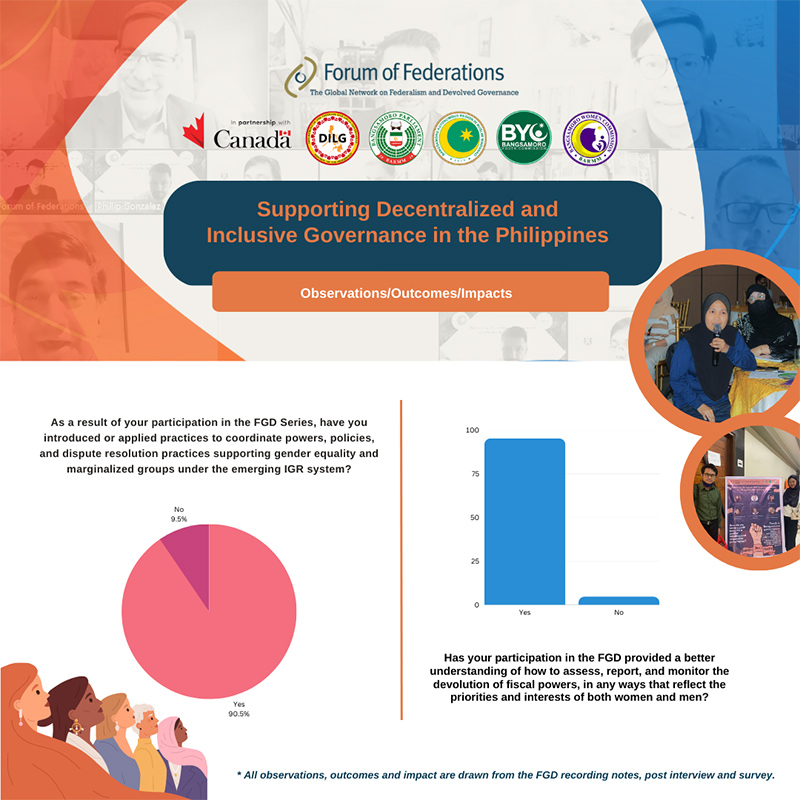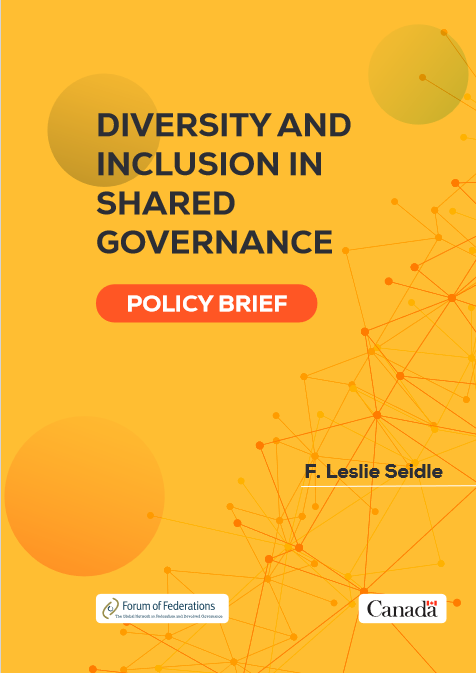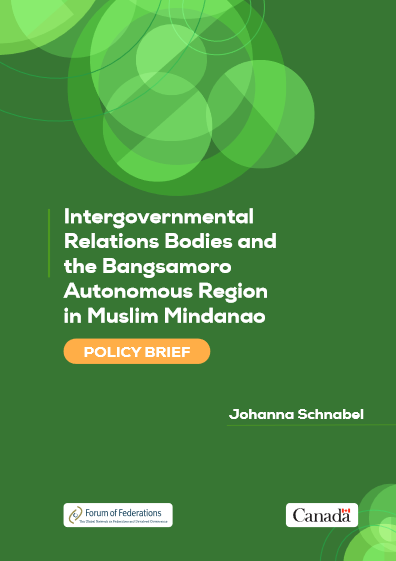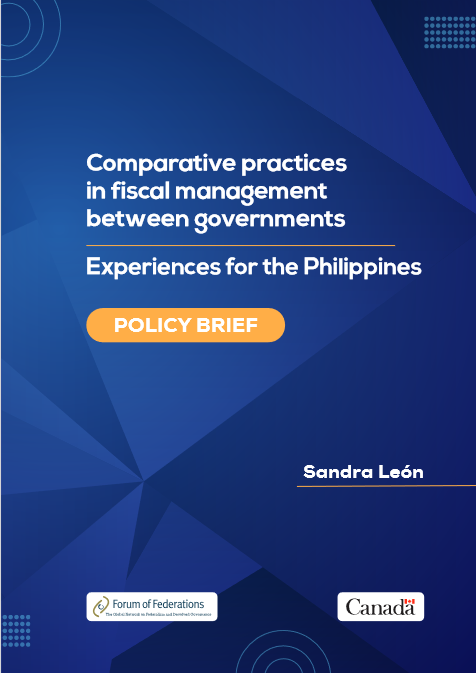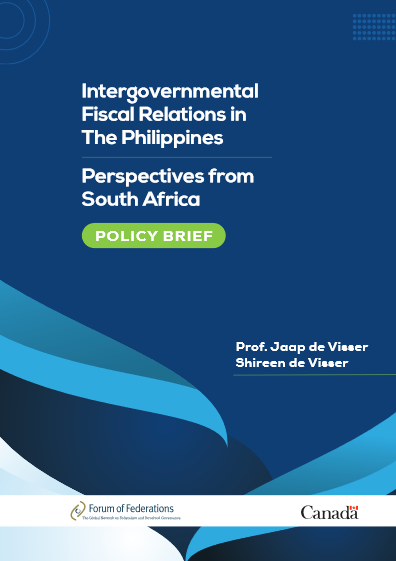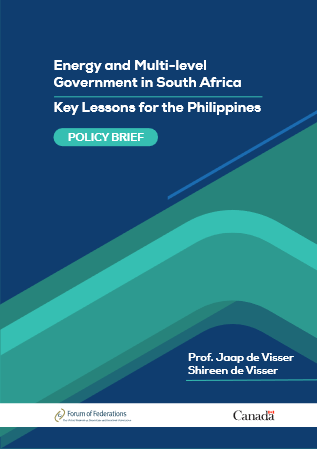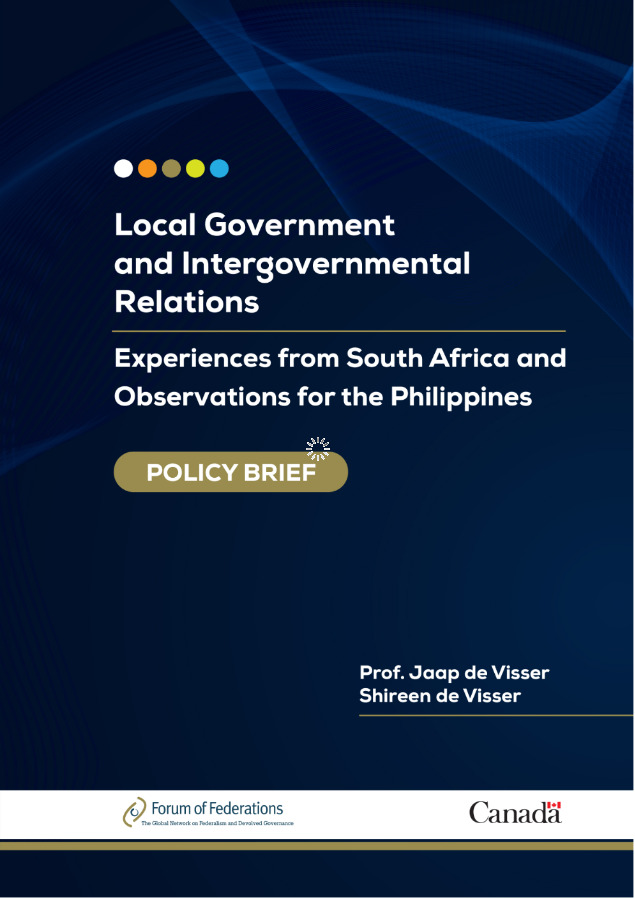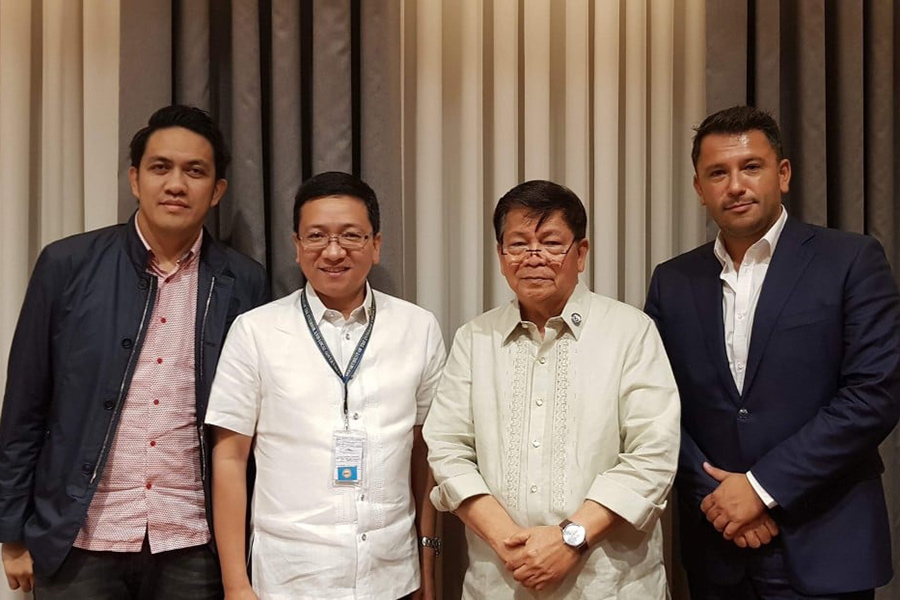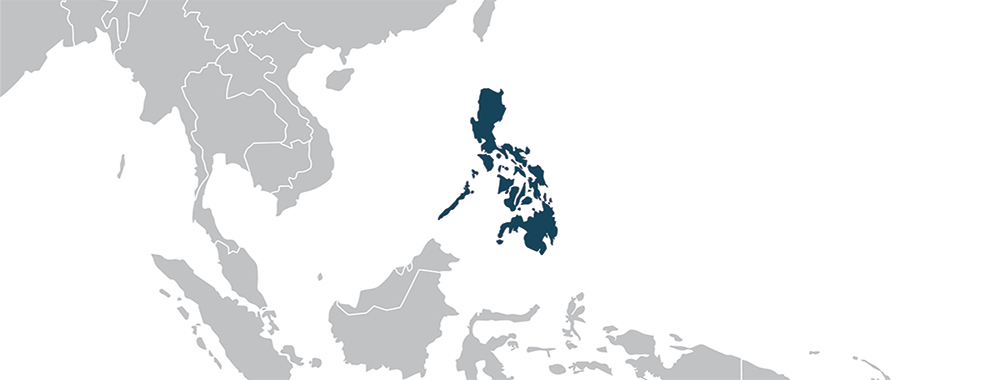
Supporting Inclusive Decentralized Governance in the Philippines is a program being implemented by the Forum of Federations in partnership with the Governments of Philippines (GoP) through the Department of Interior and Local Government (DILG), and the Bangsamoro Autonomous Region in Muslim Mindanao (BARMM). The 16-month program major objective is to support better decentralised governance initiatives, practices and outcomes – focusing across all its activities on the inclusive participation of women and marginal communities at every stage of the program.
Given the long-history of the country as a unitary system, there are divergent perceptions and understanding of the role that governments play in relation to the implementation of autonomous governance as found in BARMM region.
Thus, the major objective of the program is to increase the capacity of the various levels of the Philippine governments to address and engage in intergovernmental relations and coordination mechanisms, so that they may better facilitate cooperative inclusive governance practices between the two levels of government. The two level of governments, as a result, are best able to deliver services to all citizens of the BARMM region.
The ultimate outcome shall be to strengthen the inclusive decentralized governance practices and advance the participation of marginalised communities in the Philippines.
What the Forum is Doing: Principle-Based Strategic Approach
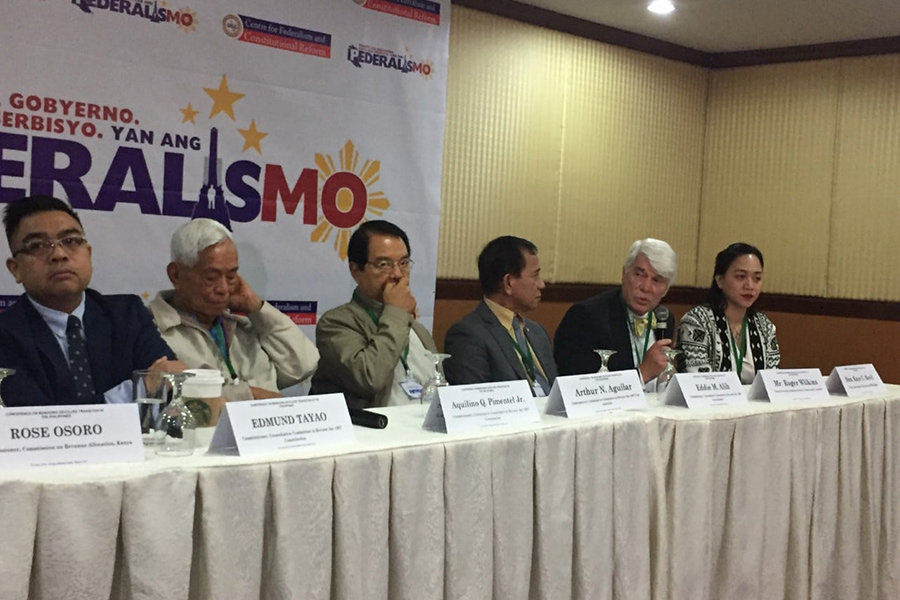
- Provision of comparative knowledge on enhancing the leadership capacities of government officials and administrators such as the women in the BARMM region. As a result, it shall increase beneficiaries’ confidence to assume leadership roles as they work together in supporting BARMM’s greater autonomy in governance;
- Facilitation of networking which will involve the participation of relevant national government agencies, the BARMM regional government, and civil society organizations. The goal is for them to work together systematically integrating institutionalised practices which will in turn promote cooperative governance.
- Inclusion and integration of marginalise sectors including women leaders to enable knowledge transfer and experience-sharing on transformational leadership, governance, and policy coordination;
- Development and dissemination of materials to foster increased awareness on the concepts of intergovernmental and fiscal practices, as well as to inculcate insight from comparative lessons so that stakeholders in Philippines may better understand and manage fiscal relationships and discharge powers established between government administrative entities such as the Philippine national government and the BARMM;
- Enhancement of the capacity of senior government officials and administrators of targeted institutions, as well as to improve political leaders’ capacity to communicate, coordinate and cooperate across all spheres of government. Moreover, understanding the value and virtue of the inclusive participation of women in all facets of governance processes is crucial.
What the Program Aims to Achieve: Results

- Strengthened Inclusive and Devolved Governance in the Philippines
Conduct of trainings and technical support shall be provided to the National Government and the regional BARMM government, which include discussions on comparative devolved practices, fiscal transfers, intergovernmental relations, gender empowerment and inclusive governance, to equipped both levels of government a better understanding on the benefits of a decentralised and devolved governance in the Philippines.
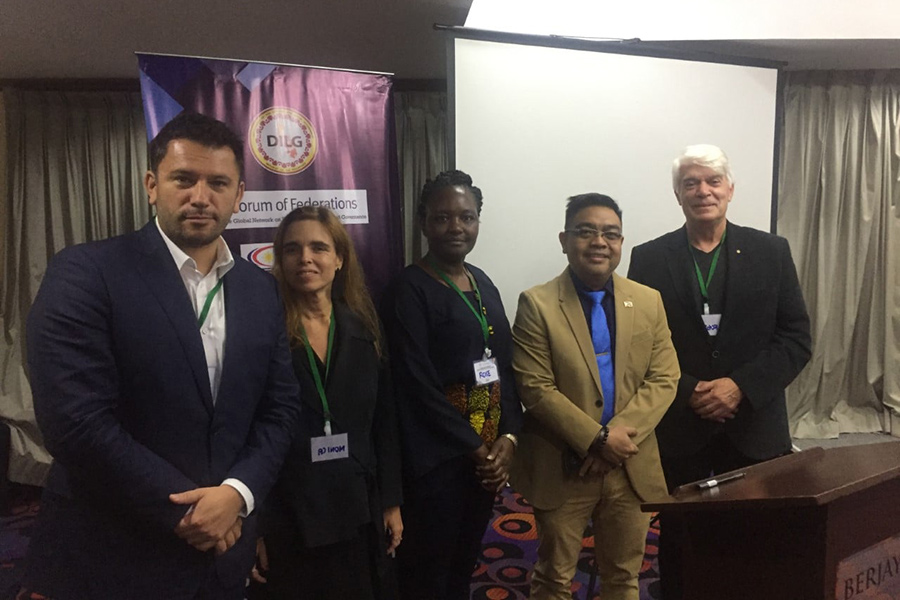
Such trainings and interventions result into immediate outcomes are as follows:
- Enhanced capacity of senior government officials and administrators across both BARMM and national spheres of government to design the allocation and devolution of fiscal powers and resources responsive to, and supporting equal participation of women and marginalized groups within decision making processes.
- Increased institutional capacity of BARMM regional and national institutions (NGO/ CSO) to assess, report and monitor the devolution of fiscal powers, the reflect the priorities and interests of both women and men.
- Strengthened capacity of senior government officials and administrators, across both spheres of government, to coordinate powers, policies, dispute resolution supporting gender equality and marginalized groups under emerging IGR system.
- Improved institutional capacity of regional and national institutions (Governmental/NGO/ CSO/WRO) to assess, report and monitor intergovernmental practices that reflect the priorities and interests of both women and men in emerging IGR system.
- Improved devolved fiscal practices implemented between national and regional governments that advance BARMM’s power sharing arrangements that are inclusive of women, marginalized groups and youth.
- Increased intergovernmental coordination practices implemented between national and BARMM regional governments (that or to) support the greater and equal participation of women, youth and marginalized groups in the decision-making process.
Strengthened Inclusive and Devolved Governance in the Philippines.

The Philippines is an archipelagic nation in Southeast Asia that is made up of more than 7,000 islands, with a total population of 108 million. The country was under Spanish colonial rule for 333 years before proclaiming independence in 1898 following the United States’ defeat of Spain in the Spanish-American War. This independence was not recognized by Spain or the United States, resulting in Philippines being ceded to the United States in the 1898 Treaty of Paris and creating the First Philippine Republic, making Philippines a colony of the United States for 48 years. Following the end of the Second World War in 1946 the country was granted full independence through the ratification of the Treaty of Manila.
The numerous ethnic and religious groups across the Philippines have resulted in significant societal cleavages that have led to ongoing conflicts. The Muslim minority, the Bangsamoro people, who live predominantly in the more remote southern Mindanao and Sulu Archipelagos have expressed marginalisation and alienation by the dominant Christian population in the country. This has resulted in a decades-long conflict with separatist groups clashing with state actors in the quest for self-determination and autonomy. This led to a 1990 law signed by President Corazon Aquino which gave the Muslim regions a degree of self-rule, creating the Autonomous Region in Muslim Mindanao. This has evolved over the decades as the conflict persisted, and in February 2019 the Bangsamoro Autonomous Region in Muslim Mindanao (BARMM) was officially formed. With a population of approximately four million, the region has developed its own distinct culture and identity throughout the country’s history and struggles as one of the most impoverished regions of the Philippines, scoring poorly on social development indicators.
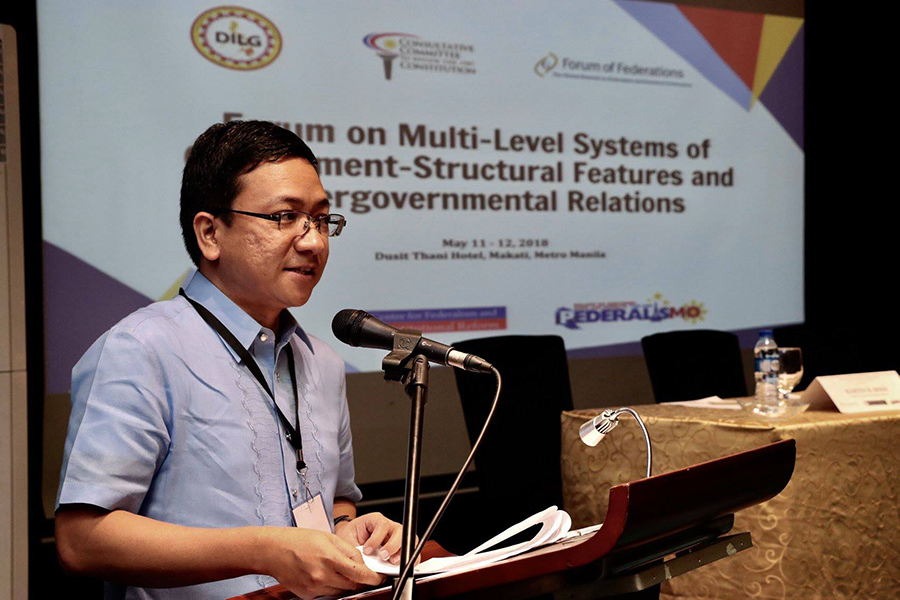
The Philippines has a democratic, unitary government with a presidential system where the president of the country is the head of state as well as the head of government. The constitution of the Philippines establishes an equal separation of powers between the three different branches of government. The executive branch is led by the president who is elected by popular vote every six years and consists of the vice president and cabinet and the executive branch is responsible for carrying out and enforcing laws in the country. The judicial branch is composed of the Supreme Court and lower courts and is responsible for interpreting, applying, and evaluating laws. Finally, the legislative branch is authorized to make, alter, and repeal laws and is made up of the Congress of the Philippines, which contains the Senate and the House of Representatives.
In the BARMM, there is an interim parliamentary structure that is currently headed by the Bangsamoro Transition Authority as the region develops its governmental structures. This transitional parliament is made up of 80 members that have been appointed by the national government, and with the transition period set to end in 2022 the region looks toward elections. As set out in the Bangsamoro Organic Law (BOL), the region will use a mixed electoral system of Proportional Representation (PR) and Majoritarian. This system results in 50% of parliament members being elected through PR, 40% elected through majoritarian voting, and the final 10% of the seats are reserved for sectoral representatives, with two seats for each non-Moro indigenous peoples and settler communities and seats for traditional leaders along with representatives of youth, women, and the Ulama. The party system in the BARMM is a hybrid of traditional local and clientelistic parties, and parties in the region are affected by clan structure.
The Philippines is considered one of the top countries in East Asia and the Pacific for closing the gender gap, second only to New Zealand, as the World Economic Forum reports that the country currently ranks 17th out of 153 countries with the smallest gap between men and women. These results measure across four dimensions, including economic participation, educational attainment, health, and political empowerment. While this is a significant achievement, the Philippines ranking has decreased from prior years, dropping the country out of the top 10 in 2020. The decline in ranking is attributed to the issue of political empowerment, as female representation in the cabinet and Congress has declined. Women in the Philippines also trail behind in economic participation and opportunity, with gains to be made in labour force participation and in closing income and wage gaps.
Despite the successes of policies and laws in Philippines for the protection and promotion of women’s rights, over ten million Filipino women live in poverty. Unequal power dynamics between women and men have prevented the full participation of women socially and politically in the country and contribute to the issue of gender-based violence in Philippines. The underlying issues of economic, political, and social gender prejudices that exist across the country are particularly prevalent in the BARMM.
In recent years, the Forum has published a number of knowledge products which discuss the Philippines. These have been published alongside Forum participation in events and workshops in the Philippines, with focus on topics such as the accommodation of minority rights, rule of law, judicial reform, and intergovernmental relations.
The Forum of Federations has also completed programs in Philippines working with government and civil society actors to provide training and education about the governance options for the country. These trainings focused on discussing multi-level and federal governance options as potential solutions to the conflict within Philippines.
In October 2016, the Forum of Federations’ Director of Programs in Asia and Australia, Phillip Gonzalez, spoke at the Global Autonomy and Governance Forum in Manila. Mr. Gonzalez spoke about the experience of intergovernmental coordination in the creation and implementation of Australia’s ‘Closing the Gap’ policy to address the disadvantages experienced by Indigenous Australians.
In May 2018 the Forum of Federations worked in collaboration with the Department of Interior and Local Government, the Centre for Federalism and Constitutional Reform, and the Asia Foundation to host a two-day intervention on intergovernmental relations in Manila. The event focused on the interactions between different levels of government and was held to support the work of the Consultative Committee in Philippines, a group appointed to review Philippines’ 1987 Constitution.
In October 2019 a delegation from Philippines took part in a study tour with the Forum of Federations in Berlin and Brussels to discuss German federalism and the dynamics between civil society groups and elected officials.




